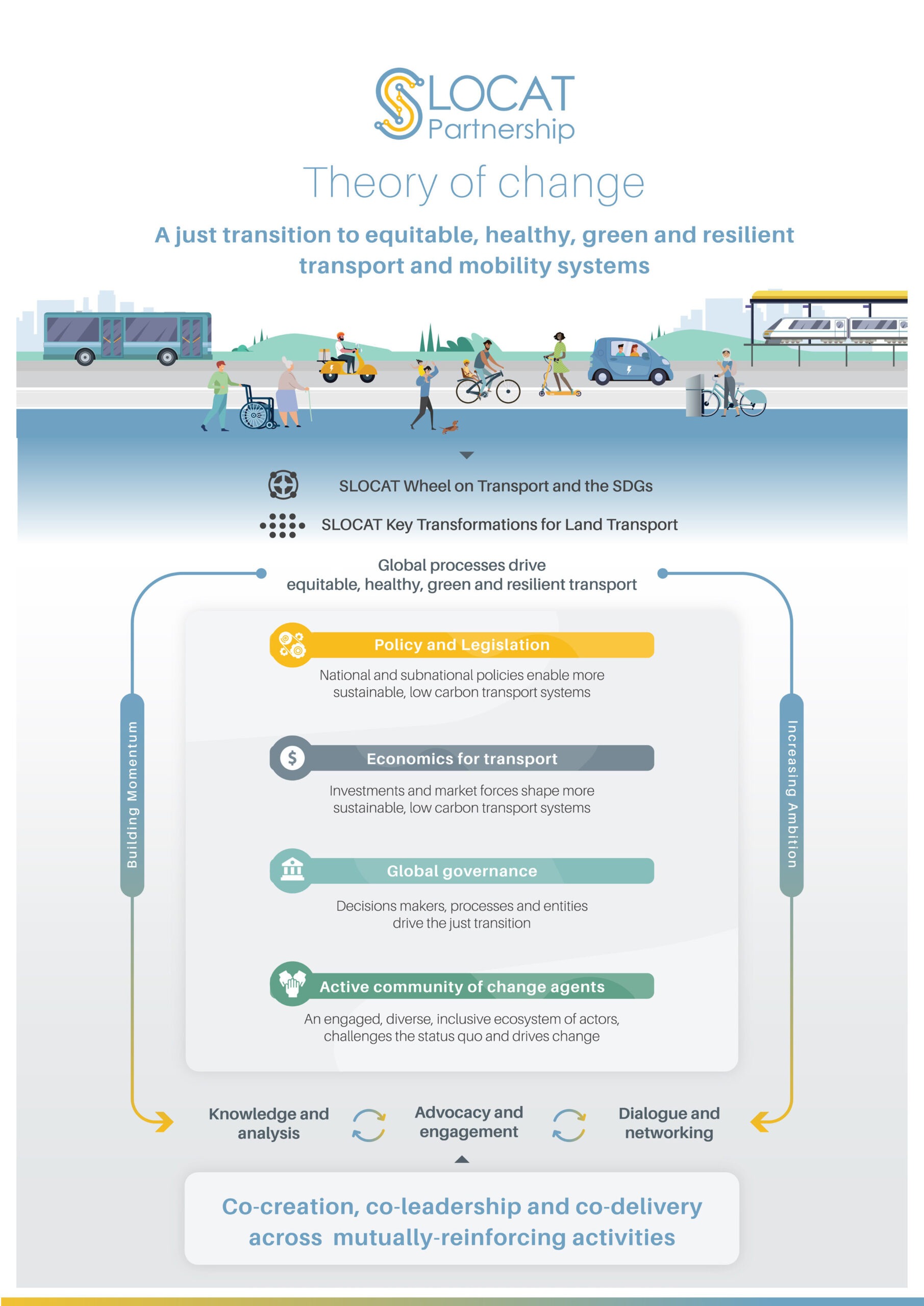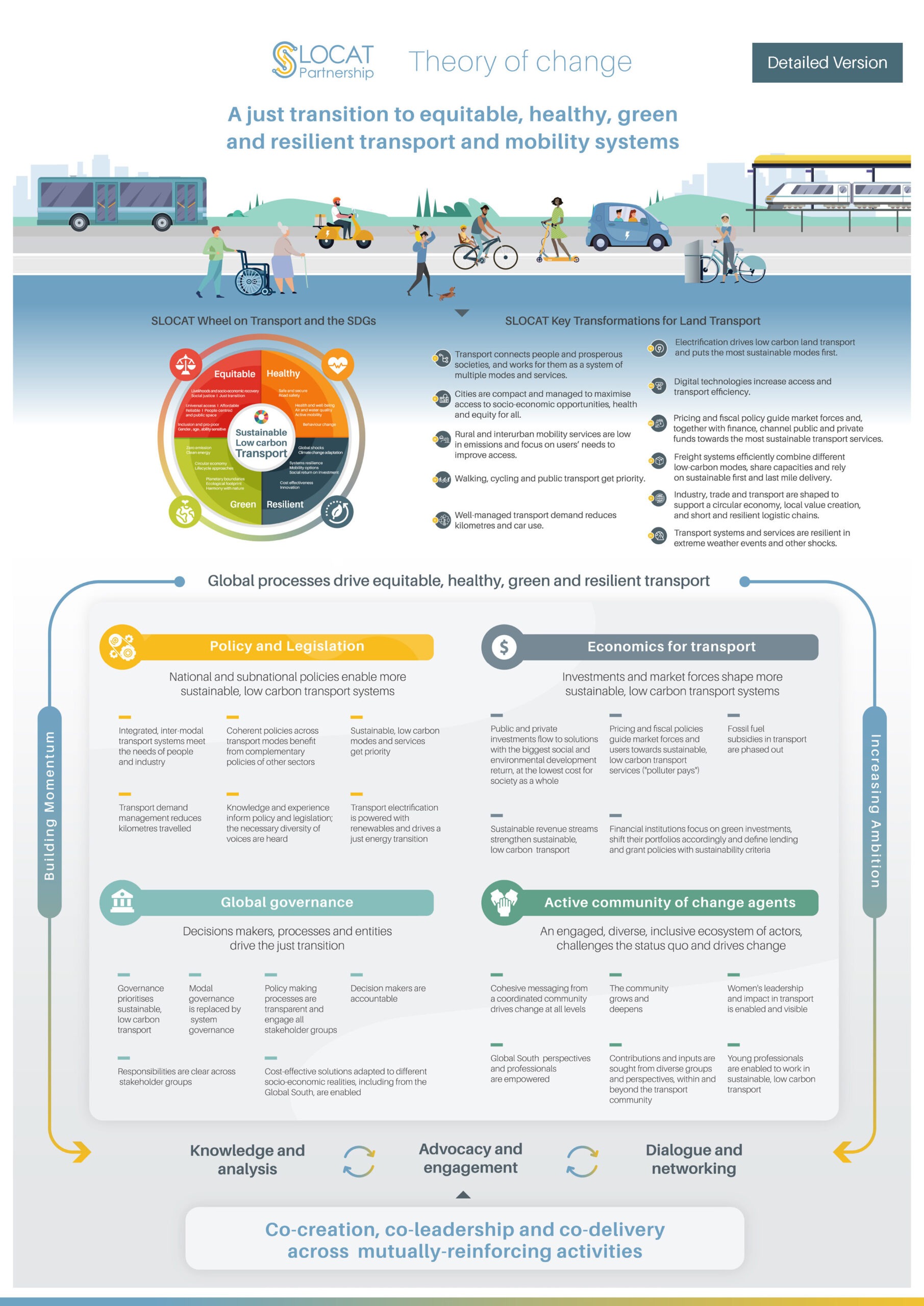Transport connects people and prosperous societies, and works for them as a system of multiple modes and services.
Cities are compact and managed to maximise access to socio-economic opportunities, health and equity for all.
Rural and interurban mobility services are low in emissions and focus on users’ needs to improve access.
Walking, cycling and public transport get priority.
Well-managed transport demand reduces kilometres and car use.
Electrification drives low carbon land transport and puts the most sustainable modes first.

